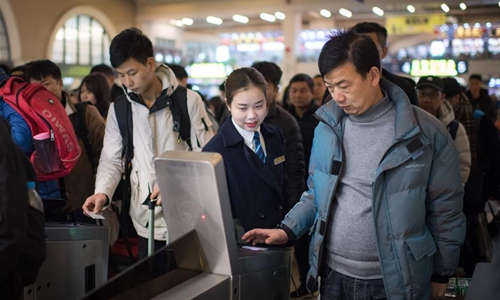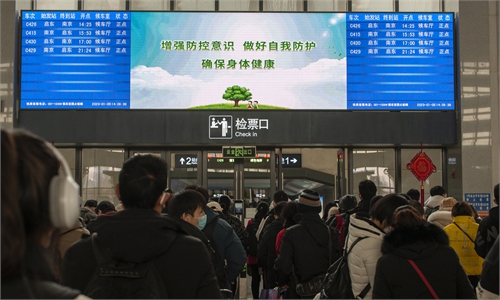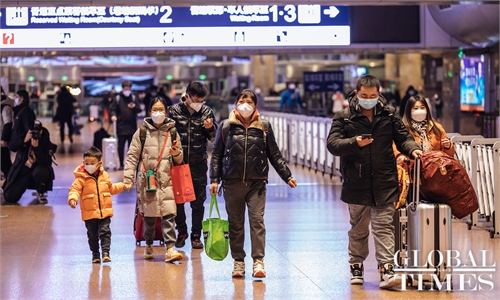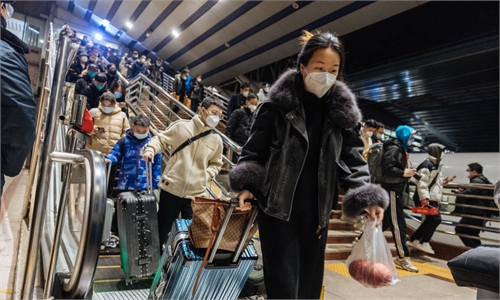ARTS / CULTURE & LEISURE
Spring Festival homecoming craze a tradition rooted in a thousand-year inheritance

Sun Fanjun (C), a ticket inspector, guides passengers through ticket gates at Hankou Railway Station in Wuhan, central China's Hubei Province, Jan. 5, 2020. (Xinhua/Xiao Yijiu)
As the grand 40-day Chinese chunyun, or Spring Festival travel rush, gets underway, discussions over this first-ever annual large migration within the country since the outbreak of COVID-19 in 2019 has spread all over Chinese social media.Feelings are mixed. People are excited about the upcoming reunion with their families. But there are worries among young people in cities including Beijing, Shanghai, and Shenzhen who fear that even while the peak of Omicron infections may be over, there are risks to catching the virus again when attending parties or on their way back home in transportation.
Around a month ago, Chen Ting, a Beijing-based photographer, said she turned down all the party invitations from her friends to avoid the potential infection.
Still, as the bell rung on Saturday as ticket sales for chunyun opened on Chinese various ticketing platforms, the country's Ministry of Transport estimated on the same day that the overall number of traffic flow for 2023's chunyun period is about to reach nearly 2.1 billion, a huge rebound equal to 70 percent of movements in 2019.
According to China's ticketing platform Ctrip.com, with the optimistic travel expectations of people's urgent desire to return home, the tickets booking this year has advanced about a week earlier than that during the epidemic prevention and control period.
But why is there such a huge wave of Chinese returning home during the Spring Festival despite this risk?
The wave in fact reflects the reunion gene rooted in Chinese culture for thousands of years. People who travel afar for a whole year value more-than-ever toward families and their own hometown, to resist the loneliness they felt in another city.
"Why it is necessary for me to go home for Spring Festival? There are many answers. I go back for visiting parents and attending class reunions," said writer Yao Yuming. "Reunion in Spring Festival is the most important motif. Otherwise I feel something is lost."
Reunion reflects the difference between the values of the Western world and China, while the former focuses on individualism, the latter group consciousness.
The cultural genes of Chinese are inevitably imprinted with group consciousness and agricultural civilization, which emphasizes the collectiveness, and is also reflected in the people's nostalgia for their homeland.
The author is an editor of the Global Times. life@globaltimes.com.cn



